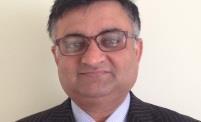Direct involvement of specialist consultants for out of hours care in A&E will have a detrimental impact, warns Rahij Anwar
During these challenging times, accident and emergency departments are finding it almost impossible to cope due to unprecedented demand. A&E waiting times form an important measuring tool of health watchdogs and, therefore, nowadays most hospitals fail to meet the desired standards.

However, despite adopting a variety of “quick fix” interventions, there is a country-wide deficit of resources, especially in busy units.
During my training in the south east of England, there were at least a couple of occasions, when “on call” general surgery consultants were approached, out of hours, by the managers to review and clerk surgical patients in A&E because the junior staff were occupied in operating theatres or on the wards.
On call specialist consultants are perceived to be “a wasted resource” in the eyes of the hospital management because they are allowed to be offsite while on duty.
As a result, many managers question their role and in some units, such as Central Manchester University Hospitals Foundation Trust, contracts have been designed for the new locum consultants with no “on call” commitments, thereby extracting more “useful” time for other direct clinical activities.
‘If a surgeon spends the whole night ‘“working” in A&E, would they be safe to deliver quality care?’
The UK is not alone in this struggle. Western countries such as Australia and Canada have similar issues. Recently, a psychotic patient stole an ambulance from the University Hospital of Alberta in Canada because he was not supervised due to lack of beds and staff.
Globally, an imbalance between demand and supply, cuts in healthcare budgets and understaffing are cited as the main reasons for these shortfalls.
However, in the UK, the reason why hospitals in general, and A&E departments in particular, are failing is because these units have been pre-programmed to fail in order to meet the hidden political and financial agenda, geared towards NHS privatisation. The closure of many struggling A&Es and out of hours GP services are typical examples.
More closures are likely to follow, which will force the public to readily accept healthcare privatisation.
Direct impact
Direct involvement of specialist consultants for out of hours care in the A&E, at the moment, will affect routine patient care in operating theatres and in clinics and may have a direct impact on safety, quality, training and interdepartmental relations.
If a general surgeon spends the whole night “working” in the A&E, would they be safe to deliver quality care, which may include operating on serious patients the following morning? The answer is, obviously, “no”.
Additionally, the trainees would lose confidence in handling emergencies and the workload could actually increase if every single patient awaits a “senior review”, which is happening anyway, nowadays.
‘We haven’t reached a stage where we are financially competent to provide a consultant delivered service’
What we have to remember is that we have not reached a stage yet where we are financially competent to provide a consultant delivered service across all specialities.
In an ideal world, when every specialist consultant remains on site and is the first port of call, one could perhaps talk about having special cubicles in the A&E, where patients see specialist consultants directly, when they arrive. However, we need a large number of specialists, new contracts and a huge amount of resources to make this dream a reality, which is unlikely in the current financial environment.
It is common knowledge that the urgent need of the hour is to have a robust senior A&E workforce coupled with an increase in capacity, especially because other avenues of emergency care have been closed. This requires visionary workforce planning with special and attractive salary packages to the A&E staff.
Separate A&E run day clinics, with input from specialist consultants, can also help to reduce the burden on A&E, especially at night. Improvement in communication between specialities, greater flexibility and available of beds are also areas that require close attention.
Most doctors, including those working in A&E, believe that the four hour target system should be abolished, as it is counterproductive and puts a huge strain on the service.
Whereas A&E will always be a political football, the public should understand that the current issues are solely related to the lack of resources and closure of neighbouring A&E units.
They can strengthen the hands of the clinical staff by strongly opposing such closures and by supporting the A&E staff and hospital specialists in delivering quality care effectively, using the current model.
The past can’t transform into the future without meeting the needs of the present and a “consultant delivered service” is still, therefore, too far away.
Rahij Anwar is a consultant in trauma and orthopaedics at Pilgrim Hospital, Boston, Lincolnshire


























1 Readers' comment